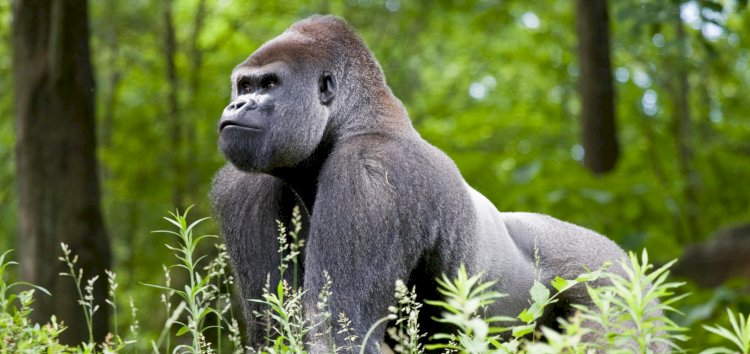Ugandan Man Who Killed Rare Gorilla Sentenced To 11 Years In Prison
The suspect told investigators that he killed the gorilla in self-defence

A Ugandan man who pleaded guilty to killing a rare silverback gorilla will spend the next 11 years in prison.
A 25-year-old male gorilla named Rafiki was found dead in June at the Bwindi National Park in Uganda. Rafiki was the dominant male in a family of 17 mountain gorillas.
The suspect told investigators that he killed the gorilla in self-defence.
About one thousand mountain gorillas live in protected areas in Congo, Uganda and Rwanda.
Tourism in national parks brings critical funds to protect the animals, but since the coronavirus pandemic, the industry has collapsed, and concerns about how to protect vulnerable animals are rising.
Mountain gorillas are now critically endangered due to the surge of illegal hunting.
Four poachers were arrested in connection with the killing of the rare silverback gorilla in Uganda’s Bwindi Impenetrable National Park, a lush preserve of mist-shrouded hillsides and thick rain forests that is home to nearly half of the world’s mountain gorillas.
READ ALSO:
A Report Says China Is Suspected Of Hacking The Vatican. Here is Why
The silverback, known as Rafiki, was killed by a poacher with a spear, according to the Uganda Wildlife Authority. Rafiki, who was believed to be about 25, was the leader of the famed Nkuringo gorilla group, which has been popular with tourists for decades.
Rangers found Rafiki’s body on June 2, a day after he was reported missing in the park, the Uganda Wildlife Authority said. A post-mortem report showed that a sharp device or object had penetrated his abdomen and pierced his internal organs, the authority said.
The last time a mountain gorilla was killed by a spear was in June 2011, according to the International Gorilla Conservation Programme. But there are signs that poaching in gorilla parks has increased in recent months, as tourism has fallen because of the coronavirus pandemic, the organization said.





































